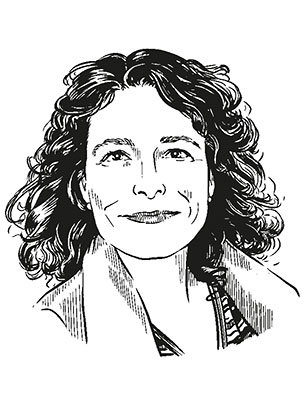Corruption: What is the problem, Lucy Koechlin?
Text: Lucy Koechlin
What are the mechanisms behind global corruption and what is the best way to combat it?
In many countries around the world, people have no difficulty in identifying corruption as the main source of political and economic ills. Taxi drivers will invariably bemoan corrupt politicians and parties, and opposition parties denounce the corruptness of those in power. An international consensus has by now been reached that corruption truly hampers a country’s economic, social and political development.
This consensus should not be taken for granted, given that corruption was once downplayed as part of the “teething troubles” of modernizing states during the first few decades of independence for postcolonial nations. What is equally clear today is that, far from being a mere cultural phenomenon, the corruption in these countries served tangible strategic and economic purposes.
Former colonial rulers used all manner of material benefits to bribe and prop up political elites that benefited their economic and ideological interests. Most of these forms of preferential treatment would be considered corruption today, ranging as they did from expensive trips to Paris or London for high government offi cials and their entourage to lucrative contracts for the supply of military or other equipment that were of no advantage to anyone except the company involved and a few influential politicians. The damage wrought by corruption went far beyond bloated, misdirected government spending. The upshot has been a systemic loss of trust in institutions and procedures.
With the end of the Cold War those involved in providing foreign aid came to realize that corruption undermines any form of collaboration to support sustainable development. Under the heading of „Good Governance“ – which comprises anticorruption measures – a range of programs are still being implemented that are aimed at strengthening the transparency, integrity and accountability of public institutions and so make them more effective.
There is no doubt that these are noble and worthy goals. However, it is worth asking whether they really address the systemic causes of corruption. Today, these include global financial fl ows that are hard to track – think Panama Papers – which plays into the hands of illicit or criminal interests.
The trade in raw materials such as coltan, tantalum or gold is a case in point. Corruption is at play everywhere, from licenses granted by governments to kickbacks for local authorities. Despite all national and international efforts, it can be uncovered only in isolated cases. The opaque linkages between corporations and governments seem fundamentally to persist, as evidenced more recently by the Siemens, Petrobas/Odebrecht and similar scandals, which brought to light worldwide systematic bribery to the tune of millions (and an aggregate of billions) of dollars.
It is these impenetrable global interconnections that make corruption the problem that it is. They remain unaff ected by isolated and politically motivated foreign aid interventions to support collaborative development eff orts. What is needed is far greater determination at national and international levels to enforce cross-sector measures that take no account of particularistic interests of states and companies.
More articles in the current issue of UNI NOVA.

